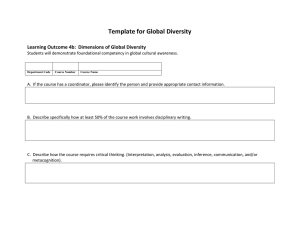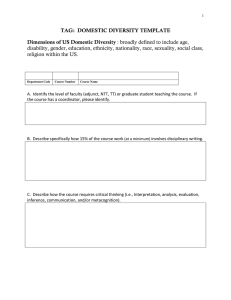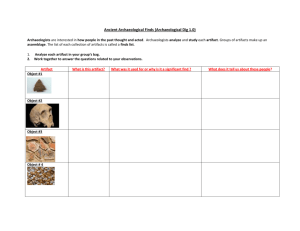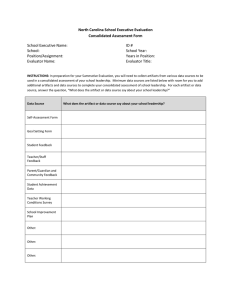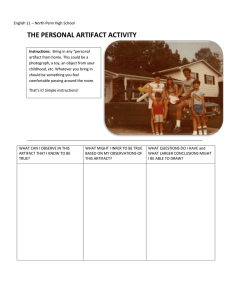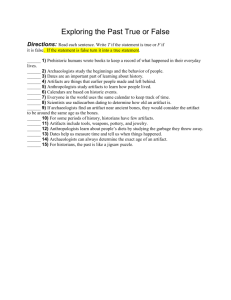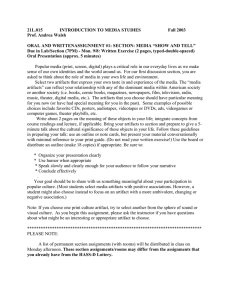Social Issues Template
advertisement
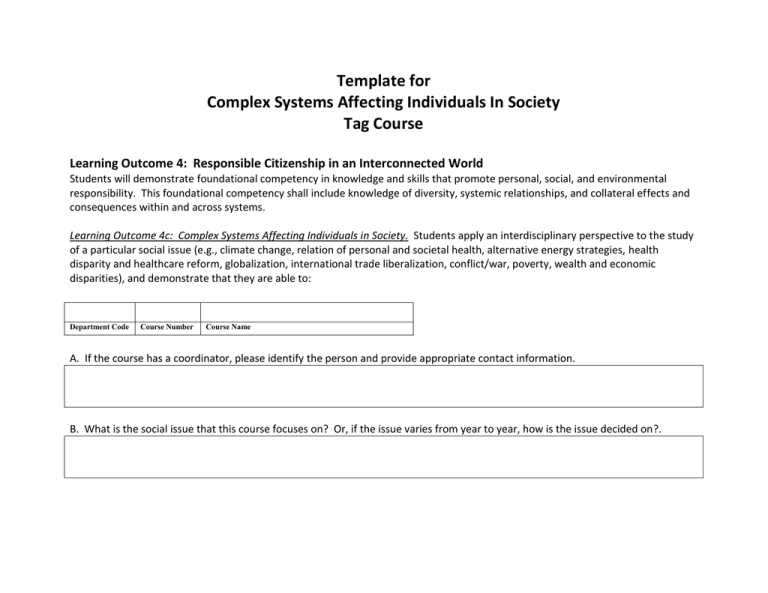
Template for Complex Systems Affecting Individuals In Society Tag Course Learning Outcome 4: Responsible Citizenship in an Interconnected World Students will demonstrate foundational competency in knowledge and skills that promote personal, social, and environmental responsibility. This foundational competency shall include knowledge of diversity, systemic relationships, and collateral effects and consequences within and across systems. Learning Outcome 4c: Complex Systems Affecting Individuals in Society. Students apply an interdisciplinary perspective to the study of a particular social issue (e.g., climate change, relation of personal and societal health, alternative energy strategies, health disparity and healthcare reform, globalization, international trade liberalization, conflict/war, poverty, wealth and economic disparities), and demonstrate that they are able to: Department Code Course Number Course Name A. If the course has a coordinator, please identify the person and provide appropriate contact information. B. What is the social issue that this course focuses on? Or, if the issue varies from year to year, how is the issue decided on?. C. Describe specifically how at least 15% of the course work involves disciplinary writing. D. Describe how the course requires critical thinking applied to the issue. (Interpretation, analysis, evaluation, inference, communication, and/or metacognition). D. Complete the table of how the course will address the specifics of each learning outcome in an interdisciplinary manner: Learning Outcome Description Describe how the Course addresses each outcome 4ci Recognize that complex systemic relationships impact social issues in general, and explain the importance of these systems to resolving the particular social issue. 4cii Describe the individual and systemic (i.e., organizational and governmental) contributors to the particular social issue, and explain the short and long term impact of each. 4ciii Identify and articulate the social, technical, economic and scientific foundations of the social issue. 4civ Distinguish the costs and benefits of solutions to the social issue. E. Learning Artifact(s). These student-produced artifacts will be used for formative assessment of the effectiveness of the General Education program. Therefore, you should select a primary artifact that meets as many of the learning outcomes identified on the template as possible, including critical thinking and discipline-appropriate communication. You may identify secondary artifacts if necessary. Examples of learning artifacts include: course portfolio, comprehensive exam, lab report, project, etc. Artifact Describe the artifact and identify which learning outcomes it addresses Primary Secondary (if needed) F. How will the artifacts be collected and archived? (Springboard submission, hard copies scanned, etc.) G. Attach a syllabus that identifies the student artifact(s) to be collected and a schedule/outline of the course reflecting instruction in all the required learning outcomes. H. Attach material given to students for learning artifact(s); for example, assignment or a blank copy of exam.
